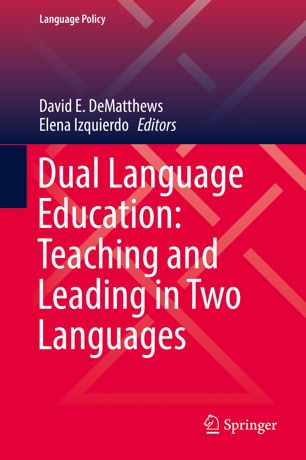

Most ebook files are in PDF format, so you can easily read them using various software such as Foxit Reader or directly on the Google Chrome browser.
Some ebook files are released by publishers in other formats such as .awz, .mobi, .epub, .fb2, etc. You may need to install specific software to read these formats on mobile/PC, such as Calibre.
Please read the tutorial at this link. https://ebooknice.com/page/post?id=faq
We offer FREE conversion to the popular formats you request; however, this may take some time. Therefore, right after payment, please email us, and we will try to provide the service as quickly as possible.
For some exceptional file formats or broken links (if any), please refrain from opening any disputes. Instead, email us first, and we will try to assist within a maximum of 6 hours.
EbookNice Team

Status:
Available0.0
0 reviewsThis book provides a comprehensive and interdisciplinary examination of dual language education for Latina/o English language learners (ELLs) in the United States, with a particular focus on the state of Texas and the U.S.-Mexico border. The book is broken into three parts. Part I examines how Latina/o ELLs have been historically underserved in public schools and how this has contributed to numerous educational inequities. Part II examines bilingualism, biliteracy, and dual language education as an effective model for addressing the inequities identified in Part I. Part III examines research on dual language education in a large urban school district, a high-performing elementary school that serves a high proportion of ELLs along the Texas-Mexico border, and best practices for principals and teachers.
This volume explores the potential and realities of dual language education from a historical and social justice lens. Most importantly, the book shows how successful programs and schools need to address and align many related aspects in order to best serve emergent bilingual Latino/as: from preparing teachers and administrators, to understanding assessment and the impacts of financial inequities on bilingual learners. Peter Sayer, The Ohio State University, USA